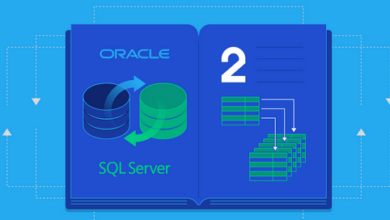Investment Options For Indian Expats In Canada
Choosing the best investment options for Indian Expats in Canada requires insight into different industries, including gambling. There are several ways of making money online and offline and with technological advancements, more Indian investors are diversifying their portfolios.
Figuring out how and where to invest isn’t an easy task. After all, you want your money to grow and earn you some pretty decent returns in the future. If you’re an Indian expatriate living in Canada, and you’re looking for the best investment options in the country, we have good news for you. Canada’s financial system is built to help its citizens as well as foreigners build and generate consistent returns.So, how can one invest their income and savings in Canada? We have all the answers clearly put down in this guide. We will walk you through all the safest options available, give detailed explanations and hopefully help you save and grow your money.
Registered Retirement Savings Plans (RRSPs)
Registered Retirement Savings Plans were introduced back in 1957 as part of the Canadian Income Tax Act. They are currently registered with the Canadian government and regulated by the Canada Revenue Agency (CRA).
An RRSP is probably the best investment option for foreigners in Canada. With an RRSP account you can hold a wide-variety of assets including stocks, mutual funds, cash and bonds. Exchange-traded funds (ETFs), income trusts, mortgage loans and foreign currency are also welcomed
Additionally, one is allowed to share the account with their spouse and both individuals enjoy tax benefits. One is also allowed to contribute to the account in their spouse’s name and the retirement income is divided evenly. If an individual and spousal account doesn’t fit you, you can set up a pool RRSP. A pool RRSP is often used by small business employers and employees, as well as people who are self-employed. There are also group RRSPs which are created by employers for their employees and they are funded with payroll deductions.
As for the contribution limit, it’s currently set at 18% of the income an individual reported on their previous year tax return. Avoid contributing more than the amount required as you may end up paying some heavy penalties. Also you can withdraw the assets at any age but once you turn 71, you must liquidate everything or shift the assets to a Registered Retirement Income Fund (RRIF).
There are many benefits that come with an RSSP. First, the money placed will grow tax-free until it’s withdrawn. This means more returns and a happy retirement. Also, you can borrow up to C$35,000 from your account to buy your first home as well as withdraw up to a maximum of C$20,000 a year to fund your education.
Tax –Free Savings Accounts (TFSA)
Introduced in 2009, Tax-Free Savings Accounts allow Canadian residents to save and invest their money absolutely tax-free. At the time of withdrawal, you’ll also not be charged anything.
A TFSA account can hold several assets including cash, mutual funds, savings deposits, bonds, stocks and ETFs. It is available to all Canadian residents aged 18 and above including international students, foreign workers, permanent residents and landed immigrants.
The annual contribution limit for a TFSA is currently set at C$6,000. This limit is also referred to as the contribution room. If you don’t meet your limit for a certain year, the remaining balance will be carried forward to the next year. Also if you contribute more than required the CRA will charge you a penalty of 1% every month until the excess contribution is withdrawn.
Registered Education Savings Plan (RESP)
Created and run by the Canadian government, RESPs are meant to encourage people to invest in their children’s education. You can fund the account with your own money as well as receive financial boosts from the federal government and in other times from provincial governments.
Some of the products you can hold in an RESP include cash, stocks, mutual funds and bonds. Also no tax is charged until funds are taken out to pay for the child’s education. There’s also no annual contribution limit. However, the government has set a lifetime contribution limit of C$50,000 per beneficiary.
We should also mention that if a child doesn’t pursue a post-secondary education within 36 years of opening the account, the government can request their share back. Additionally, any funds withdrawn from an RESP that are not used for education-related activities are taxed with an additional 20% penalty.
Guaranteed Investment Certificates (GICs)
A GIC is a short-term investment sold by Canadian trust companies and banks. They are popular due to their low-risk fixed rate of return which protects people from financially crippling events by the stock market. A GIC is one of the safest investments you can make in Canada. You can use it to set aside money for anything, be it a car, education or a house.
Once you get a GIC, you need to deposit funds into your bank account and it will begin earning interest. Note that the money must remain in your account for a pre-set length of time and the interest gained will depend on how long the money was there.
Real Estate
Investing in Real estate is one of the most rewarding things in Canada. This is mainly because, every year millions of people look for wonderful houses to settle in. If you don’t want to start building houses from scratch, you can make a good sum of money from flipping old and dilapidated houses. In fact, almost all real estate moguls began their business by flipping small houses.
If you’re not comfortable with this but still want to invest in something related to real estate, you can always join a Real Estate Investment Trusts (REITs). An REIT is a company that sells shares in various real estate investments. REITs come with some pretty decent tax benefits that neither stocks nor bonds offer.
Online Gambling
Online gambling is one of the fastest growing industries in Canada. In the last few years, the popularity of online casinos and sports betting platforms in the country has grown by over 70%. Furthermore, Indian expats in Canada love sports, whether it is betting or watching. According to T20IPL India, huge leagues such as the IPL are really popular among Indian gamblers.
This is quite impressive considering Canadian laws still remain murky when it comes to gambling.
If you’re looking for a good investment option that will give you decent returns, we recommend you establishing an online betting platform. This you can do individually or by partnering with other investors who share the same ideas as you. Also, if you’re an experienced gambler, you can bet on a few sports or casino games and hopefully win some good money. However, play intelligently and practice responsible gaming to avoid losing money.
Final Thoughts
Whether it’s your cousin’s restaurant or the newest cryptocurrency in town, we believe there’s always something you can invest in while staying in Canada. Of course not all investment options will match your needs. Some are high-risk and might probably lose you money while others are low-risk and pretty enticing. We are not giving any financial advice in this article, but rather want to help all our readers find the safest investment options currently in the market. If any of the above discussed investment options sound good to you, remember to consult financial experts before making any final decisions.




